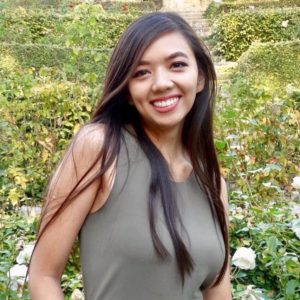
Amid the current public health concerns due to COVID-19, I am reminded of the social determinants of health or, more simply, the factors in our lives that impact health such as neighborhood or economic stability. This pandemic is concerning on all levels, but my mind draws toward the individuals, families, and communities with limited resources and how they are being further strained. The fears of this population go beyond the immediate health threat, but in other areas in their life, especially in a financial aspect.
In consequence of the coronavirus, shifts including school shutdowns, local market frenzies, and work hour cuts, pose direct conflicts for vulnerable groups and those of lower socioeconomic status. These groups are on my mind and their daily lives through this period is not easy. When I reflect on this group, I am not only concerned about the risk to their life, but about the repercussions on their livelihoods as well. Can they work from home? Where will their children receive care if they must work? If they cannot work, how will they feed their family? Who is ensuring the sick and elderly have access to basic necessities if they can’t go outside or supplies are out? How are we monitoring health, safety, and basic needs? Every “in light of COVID-19,” illuminates the dark — the gaps in systems and services and the cracks people fall into.
The COVID-19 outbreak is a pandemic on a level I have never witnessed before. It is alarming and complicated, but we are all learning. It feels as though most of the world is taking it day by day as updates come. I recognize that the situation must be monitored, incredible efforts to directly face this virus are being made, and plans are being put in place to deal with the effects. However, I continue to be stunned. The virus is unnerving, but the way we move forward creates large shockwaves too. We know we have to be safe, but we do not know what this means for us as we move forward, especially as the status of the vulnerable groups.
I hear stories of asymptomatic celebrities testing positive while people who have lost loved ones to the virus cannot even access this test. The first death in LA County was a Filipina woman named Loretta. I grew up in the area surrounding where Loretta is from and have visited that city often. This all feels almost personal that her husband who performed CPR cannot access a test. His family must be careful while they grieve. Further circumstances of their lives are unknown, but putting someone to rest is not often affordable. This virus is more than a microbial issue and threat to health, but a force. The inequity in health care based on socioeconomic status is undeniable at this time when accessibility and affordability of health services is clear, but the issue runs deeper for these vulnerable populations.
Socioeconomic status is an issue at the gate for health outcomes and as the situation develops, the economy and workers are taking deep hits too. The fluctuation of the market has been volatile, but especially so now that markets are weakened from this health crisis. People on fixed incomes or those who receive aid are struggling to find necessities. Employers are letting go of their team members to accommodate the shutdowns. The fallout from this virus is severe and the unknown in the repercussions is taxing too.
There is uncertainty in the air and there are no clear steps forward, but we can rise above this and do our part. This pandemic has uncovered inequity and inadequate social safety nets, but it gives me hope and encouragement that change is possible. There are many questions and we can help answer them. We can lead as individuals by simply taking care of ourselves through being mindful, going out less, and being moderate with our purchases. At this time, California is completely locked down and it’s key for us to follow orders to maintain safety and health. This is a challenge, but I want to stress that this is a time for self-care, whether that is unwinding more or picking up a new hope, and that can lead to whole community health too. Beyond taking care of ourselves to care for all, we can share resources and offer what we can if we have the capacity. On a larger level, despite social distancing, we can still mobilize. It is important for us to support inclusive, considerate leaders and policies like the ones Young Invincibles recommends to make the system serve us all. We still have agency and we should hold on to it.
Justine Ventura Mejia is a graduate of UC Berkely and a member of Young Invincibles’ Young Advocates Program.
